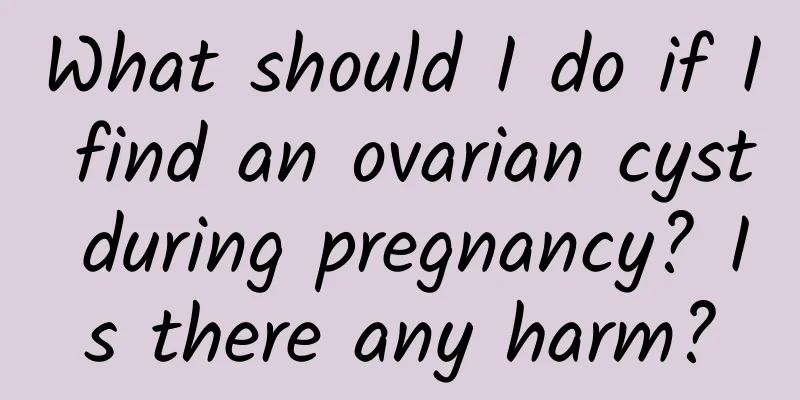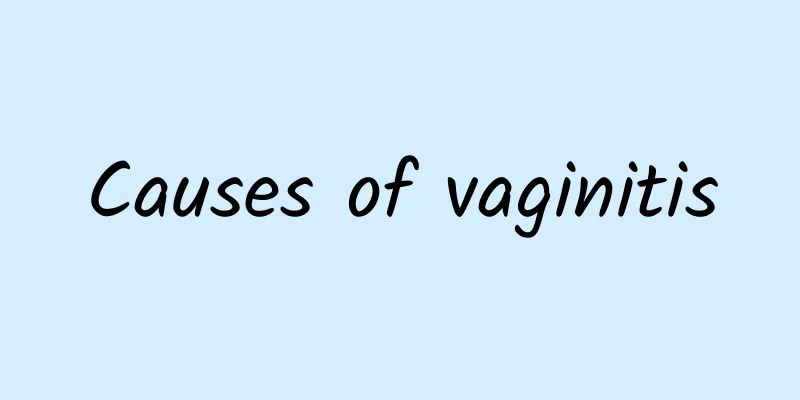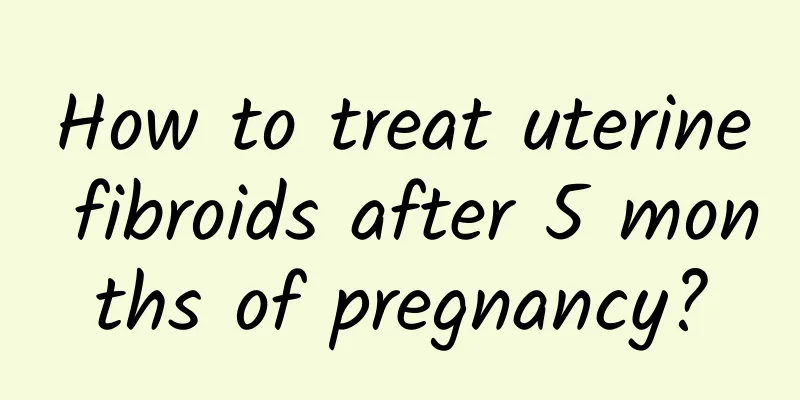What should I do if I find an ovarian cyst during pregnancy? Is there any harm?

|
Before and after pregnancy, women will undergo some examinations. If gynecological diseases are found during pregnancy, they should be treated properly. So, what should I do if I find ovarian cysts during pregnancy? Are there any harms? The treatment for ovarian cysts found during pregnancy is: 1. Ovarian cysts are usually discovered during internal examinations during early pregnancy. About 12% of those discovered in early pregnancy are corpus luteum cysts, which usually disappear within 3 months and will be gone when checked again three months later. 2. When an ovarian cyst is found, an ultrasound should be performed to help determine the nature of the tumor and further clarify the diagnosis. 3. If it is a pathological tumor, such as chocolate cyst, teratoma, serous cystadenoma, etc., it is found in early pregnancy and rechecked three months later. If it is a tumor found three months later and is more than 5 cm, it can be surgically removed at 18-20 weeks of pregnancy, because the embryo has entered the mid-term and is relatively stable and can withstand the impact of surgery. 4. If the ovarian cyst is not large and does not hinder the growth of the uterus, it can be removed after delivery. If the pedicle is twisted or ruptured, surgery should be performed at any time. If it becomes malignant, surgery should also be performed immediately. 5. In late pregnancy, if the ovarian tumor is in the lower part of the uterus and affects the fetal head from entering the pelvis, a cesarean section should be decisively decided. During the cesarean section, the ovarian tissue on both sides should be carefully explored and the ovarian tumor should be removed. The hazards of ovarian cysts to pregnancy include: 1. Difficult labor: If the ovarian cyst is too large, it may squeeze the uterus and fetus, causing abnormal fetal position and affecting normal delivery. It may also block the birth canal and cause difficult labor. 2. Impact on the fetus: Ovarian cysts themselves will not have any adverse effects on the fetus, but if the cysts lead to complications and require urgent surgery, or if the cysts are found to be malignant and require urgent treatment, it will affect the fetus and may even require the fetus to be abandoned. 3. Miscarriage or premature birth: If the ovarian cyst is relatively large, it may squeeze the uterus and affect the growth of the uterus, leading to miscarriage or premature birth. |
<<: What are the precautions for ovarian cyst tumors?
Recommend
What is the main cause of cervicitis?
Cervicitis is a common gynecological disease. Aft...
Briefly explain the methods of nursing patients with ectopic pregnancy
The occurrence of ectopic pregnancy will affect w...
Experts explain the causes of pelvic inflammatory disease in women
Speaking of pelvic inflammatory disease, I believ...
What should you not eat during menstruation? Five foods you should not eat too much
Girls must pay attention to diet during menstruat...
What are the specific types of ovarian cysts?
What are the specific types of ovarian cysts? Ova...
What are the symptoms of dysmenorrhea?
Dysmenorrhea is a common and frequently occurring...
Analysis of experience in the treatment of bacterial vaginosis
Among the various types of vaginitis, everyone mu...
Solutions for excessive bleeding after medical abortion
If the fetal sac is seen to be expelled during th...
What are the causes of uterine fibroids? Endocrine disorders can cause uterine fibroids
We have always believed that uterine fibroids are...
Explain the relevant knowledge of the treatment of cervical hypertrophy
It is understood that most patients with cervical...
I want to lose weight! The relationship between obesity and cancer, doctors say...
"I want to lose weight!" This sentence ...
Do you know the symptoms of cervical polyps?
Cervical polyps are accumulations formed by local...
Why can’t I lose weight? It turns out that eating these things messes up hormones
The reason why you can’t lose weight may be that ...
Patients with secondary amenorrhea should eat less fatty foods
When a woman used to have regular menstruation, b...
Are you still using hormones to treat menstrual irregularities?
If you find yourself having irregular menstruatio...









